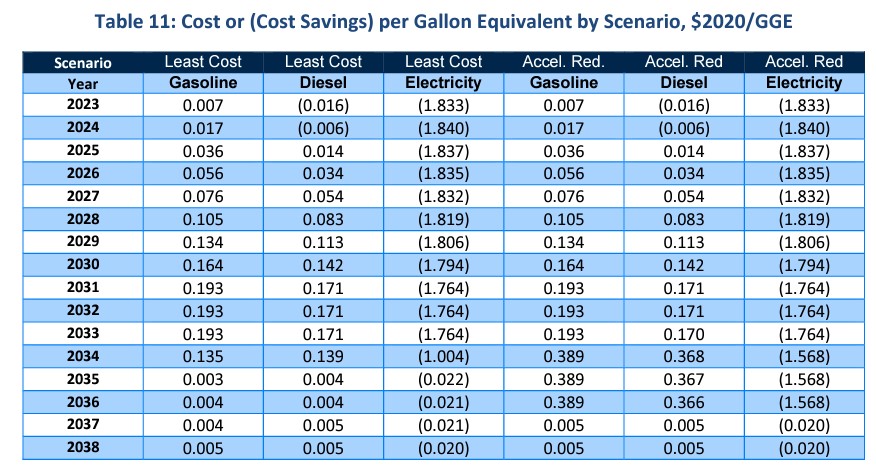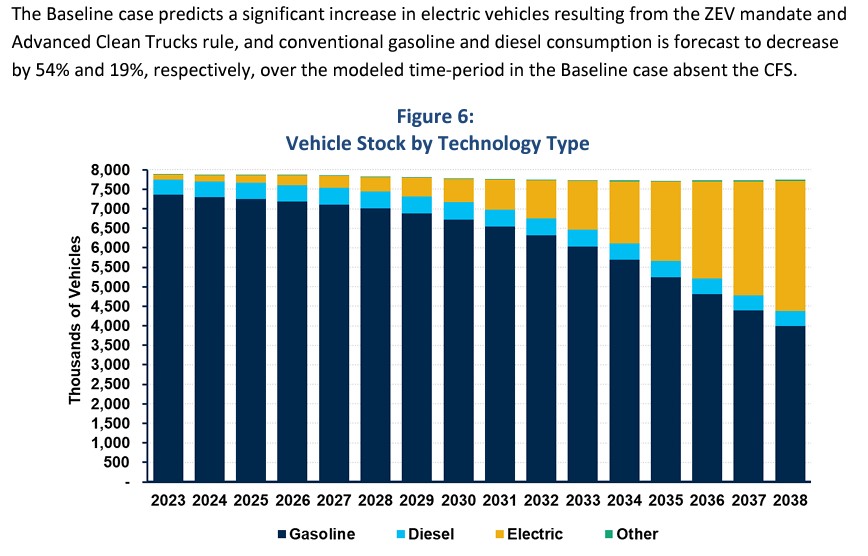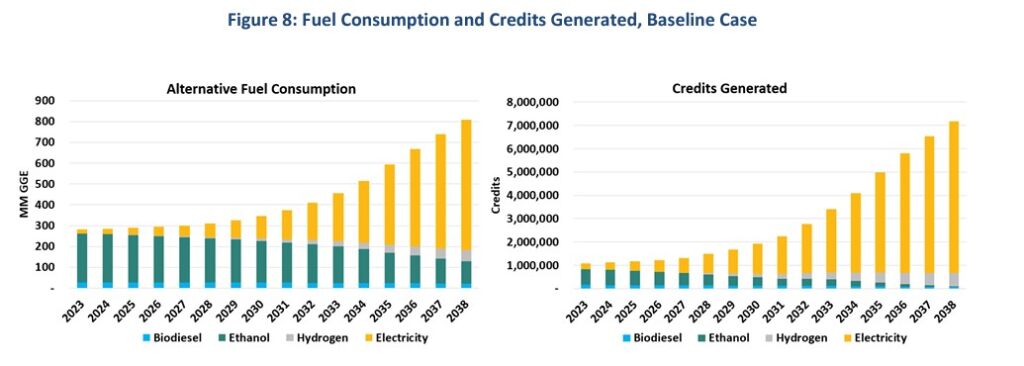Adopting California Fuel Standard will significantly increase gas prices, finds Washington report
Proponents of adopting a California Fuel Stanard (CFS) in Minnesota often claim that the policy will have no impact on gas prices, but a recent study from the Washington Department of Ecology (DOE) finds these claims are incorrect.
In fact, the study confirms the claims Mitch Rolling and I made in our report entitled Gas Station inflation. Let’s have a look.
Rising Pain at the Pump
The DOE report finds that the CFS would increase the price of gasoline and diesel fuel in the very first year they take effect, 2023. Gasoline costs would increase by 1 cent per gallon in 2023, with expenses growing to 2 cents in 2024 and 4 cents in 2025.
By 2033, the CFS causes the per gallon cost of gasoline to increase by 19.3 cents per gallon in the “least cost” scenario, and the CFS increases gasoline costs by 38.4 cents per gallon in 2034 in the “Accelerated Reduction” scenario, as you can see in the Table below.

You’ll notice that the CFS cost decreases in the model’s final years. This isn’t because it will suddenly make economic sense. It is because Washington has also adopted California’s mandates for electric vehicles, which the modelers believe will produce so many credits that the cost of each credit crashes from $156 per credit in 2033 to $2 per credit in 2035.
Compounding California Mandates
The DOE study states:
In the Baseline case, the analysis assumes that Washington finalizes a Zero Emission Vehicle mandate (“ZEV mandate”) reflecting California’s ZEV policy, which requires 100 percent of new passenger vehicles and light-duty trucks sold in the state to be zero-emissions vehicles (ZEVs) by 2035.
As a result, the share of electric vehicles on the road grows from a small fraction of cars operating in Washington in 2023 to more than one-third of vehicles by 2038.

It is important to note that the Walz Administration’s Minnesota Pollution Control Agency (MPCA) claims it has the authority to adopt all of California’s vehicle mandates, including the ban on the sale of new internal combustion engines by 2035.
Proponents of the CFS can only pretend that enacting this policy won’t increase gas prices if they embrace California’s 100 percent ban on the sale of gas or diesel-powered cars by 2035. Otherwise, the modeling shows that the CFS causes massive gas station inflation.
A Bait and Switch on Biofuels
In Gas Station Inflation, Mitch and I argued that the CFS would be a bait-and-switch on biofuels because the adoption of California’s Electric Vehicle (EV) mandates by Governor Walz would eventually squeeze ethanol and renewable diesel out of the market.
The DOE report shows this is exactly what is expected to occur in Washington, which has also adopted these EV mandates. The graph below shows the number of credits generated by fuel source over time. Electricity utterly dominates the credits generated after 2028, vastly reducing the market for biofuels.

Advocates of the CFS who claim that this policy will not increase gas prices are not being honest. Both the Oregon Department of Environmental Quality and the Washington DOE freely admit the policy will cause more pain at the pump.
Minnesota families deserve a transparent debate about the consequences of the CFS, not smoke and mirrors.